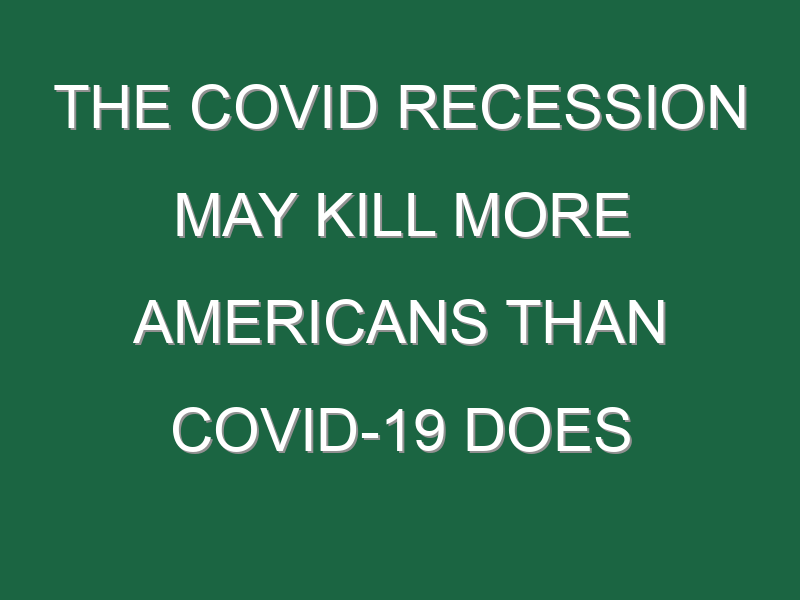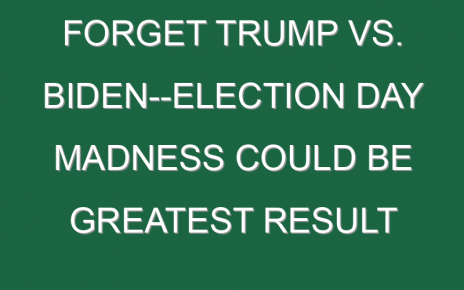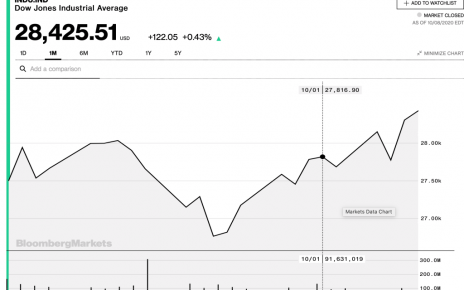The economic effects of COVID-19 could prove deadlier than the disease itself.
So says just-released research, which concludes that the total lives lost to the virus in the U.S. may “far exceed those immediately related to the acute COVID-19 critical illness…. [T]he recession caused by the pandemic can jeopardize population health for the next two decades.”
The new working paper, by authors at Duke University, Harvard Medical School, and the Johns Hopkins University business school, focuses on the almost instantaneous unemployment of millions of workers in March and April. The unemployment rate jumped from near the lowest in 50 years to the highest since the current measurement system began in 1948. While it has come down, it’s still at its highest rate since the recovery from the 2008-2009 financial crisis.
The authors wondered how unemployment affects mortality and life expectancy years later. Little research on that question existed, so they conducted their own analysis using 67 years of data about unemployment, life expectancy, and death rates from the Bureau of Labor Statistics and the Centers for Disease Control and Prevention. They were able to separate the effects of the unprecedented 2020 unemployment spike from other factors that affect mortality and life expectancy.
Their main finding: Over the next 20 years, 1.37 million more people will die than would have died without the unemployment shock the pandemic caused, a number the researchers call “staggering.” They find also that “excess deaths will disproportionately affect African-Americans.” The implied increases in deaths per 100,000 individuals over the next 20 years are 32.6 for African-Americans vs. 24.6 for white Americans. In all, about 3.2% more people would die in the U.S. over that span than would have died without the spike in joblessness.
These new findings further complicate the excruciating quandary facing policymakers. Lockdowns and other restrictions impose economic suffering but save lives. If it turns out that the economic suffering, while saving lives in the near term, also costs lives in later years, then what is the right policy response? The researchers emphasize that “we do not want to suggest that policymakers should refrain from ordering lockdowns as necessary lifesaving measures”; rather, policy should also provide “enhanced health and economic support for the most vulnerable portions of the population.”
In the U.S., that support has been provided, at least partially, through stimulus checks, extra unemployment insurance, and other measures enacted last spring and in December. So could the new paper’s predictions of excess deaths be overblown? Maybe, but other factors suggest they could be underestimated.
On the upside, we’ve never experienced a recession that reversed as quickly as this one, which struck suddenly but then bounced back sharply within months. The economy might now recover much faster than it did after past downturns, easing the damage to life expectancy. In addition, the researchers note, “This is the first recession with the Affordable Care Act in place, a critical resource to mitigate the effects of unemployment on citizens’ well-being.”
But the potential downside in this singular crisis is also formidable. The researchers catalog the dangers: “Based on emerging data, it is likely that the limited access to health care during the lockdown, temporary discontinuation of preventive care interventions, massive loss of employer-provided health insurance coverage, and the lingering concern of the population about seeking medical care out of fear of contracting COVID-19 will impact mortality rate and life expectancy even more severely” than predicted.
The new findings pose one more challenge for policymakers and everyone else. We mostly know who is dying of COVID-19 itself, and those depressing numbers, each accompanied by a name, drive a sense of urgency as we fight back. In coming decades, we will never know exactly whose lives have been shortened by the economic distress the pandemic caused. But that suffering will be just as real and shouldn’t be forgotten or ignored.
More health care and Big Pharma coverage from Fortune:
- The biggest conspiracy theories of 2020 (and why they won’t die)
- Timeline: From the first coronavirus cases to the first vaccinations
- Trump hyped Verily’s coronavirus testing tool. It led to less than 1% of all tests in 2020
- Commentary: Cracking the code of biological aging could solve America’s health care crisis
- Data delays aren’t slowing the global rollout of a Chinese COVID-19 vaccine




